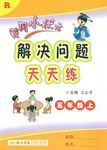题目内容
I’d just got in a taxi at the railway station when suddenly I found one of my suitcases missing. Just then, I saw a young fellow about 30 walking away with it, opening it and drawing out the valuables. “Stop thief! Stop thief!” I shouted and threw open the car door and rushed out to him, followed by the driver and half a dozen passers-by. Very soon the thief was cornered at the turn of the road. My driver caught the thief by the neck and put his hand into his trouser pocket, drawing out money, credit card, telephone book and so on and put them back into my suitcase.
Half an hour later, the car was running at full speed on the express highway. I sat back and breathed a long sigh of relief (松口气). But as I pulled out those stolen things from the suitcase and started to check them, I became dumbfounded (惊呆了). Before my eyes were 200 yuan instead of 100. And a blood test report of a 58-year-old woman appeared. I suddenly realized that the taxi driver must have mistaken the thief’s belongs and put his into my suitcase. The pitiful and begging look of the poor young man flashed across my mind again. My heart began to sink.
Two years has passed since then. But this event keeps coming back to me. Was the young man a habitual robber or a dutiful son who had been driven to desperation (铤而走险) to find money to save his mother’s life? My heart aches for him. How I wish I had gone back that summer afternoon to return the 200 yuan and say sorry to him. For the first time in my life, I realized that hate and love are very close.
小题1:Why was the writer dumbfounded when he opened his suitcase?
小题2:Who helped the writer catch the thief?
小题3:What was one of the reasons for the young man to steal in the writer’s opinion?
小题4:The major purpose for the writer to write this passage is ______.
Half an hour later, the car was running at full speed on the express highway. I sat back and breathed a long sigh of relief (松口气). But as I pulled out those stolen things from the suitcase and started to check them, I became dumbfounded (惊呆了). Before my eyes were 200 yuan instead of 100. And a blood test report of a 58-year-old woman appeared. I suddenly realized that the taxi driver must have mistaken the thief’s belongs and put his into my suitcase. The pitiful and begging look of the poor young man flashed across my mind again. My heart began to sink.
Two years has passed since then. But this event keeps coming back to me. Was the young man a habitual robber or a dutiful son who had been driven to desperation (铤而走险) to find money to save his mother’s life? My heart aches for him. How I wish I had gone back that summer afternoon to return the 200 yuan and say sorry to him. For the first time in my life, I realized that hate and love are very close.
小题1:Why was the writer dumbfounded when he opened his suitcase?
| A.Because he was now searching a different suitcase. |
| B.His own blood test report has changed into an old woman’s. |
| C.An old woman had put her savings into his suitcase. |
| D.He was facing things that did not belong to himself. |
| A.No one. He caught the thief all by himself. |
| B.The driver with several other people. |
| C.Some policemen. |
| D.The thief came back and gave back the suitcase to him. |
| A.The young man was a born thief. |
| B.The young man couldn’t afford to pay for his old mother’s medical treatment. |
| C.The young man’s mother asked him to do so. |
| D.Young people are likely to steal when they are poor. |
| A.to describe what hate and love are like |
| B.to entertain the readers with an interesting story |
| C.to impress the readers with an interesting story |
| D.to encourage the readers to help him find the thief |
小题1:D
小题2:B
小题3:B
小题4:C
试题分析:
小题1:D 推理题。根据第二段4,5,6行I became dumbfounded (惊呆了). Before my eyes were 200 yuan instead of 100. And a blood test report of a 58-year-old woman appeared. I suddenly realized that the taxi driver must have mistaken the thief’s belongs and put his into my suitcase.说明司机把小偷的钱也给了他,说明他看见不属于自己的东西也在手提箱了,故D正确。
小题2:B 细节题。细节题。根据第二段3,4行I shouted and threw open the car door and rushed out to him, followed by the driver and half a dozen passers-by. Very soon the thief was cornered at the turn of the road说明司机和很多的过路人都来帮助我抓贼,故B正确。
小题3:B 细节题。根据第三段2,3行Was the young man a habitual robber or a dutiful son who had been driven to desperation (铤而走险) to find money to save his mother’s life?说明B正确。
小题4:C 推理题。根据文章最后一段说明作者是想通过这样的一个故事来告诉我们恨和爱只是一念之间。是想用这个故事来让我们知道。故C正确。
考点:考查情感类短文阅读
点评:文章给我们讲述了一个故事来告诉我们恨和爱只是一念之间。考查细节题和推理题较多,在阅读的时候注意从文章的段落大意和细节着手进行,准确定位,细致分析。

练习册系列答案
 黄冈小状元解决问题天天练系列答案
黄冈小状元解决问题天天练系列答案 三点一测快乐周计划系列答案
三点一测快乐周计划系列答案
相关题目